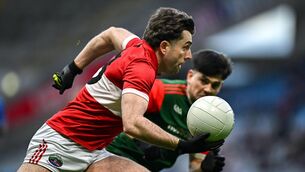‘RTÉ doesn’t set GAA agenda’
The weekend show has highlighted a number of incidents in recent years, some of which have gone unnoticed or unpunished by referees, after which protagonists have been handed suspensions and/or fines.
“I think that can be overstated,” said RTÉ’s sports chief Ryle Nugent.











